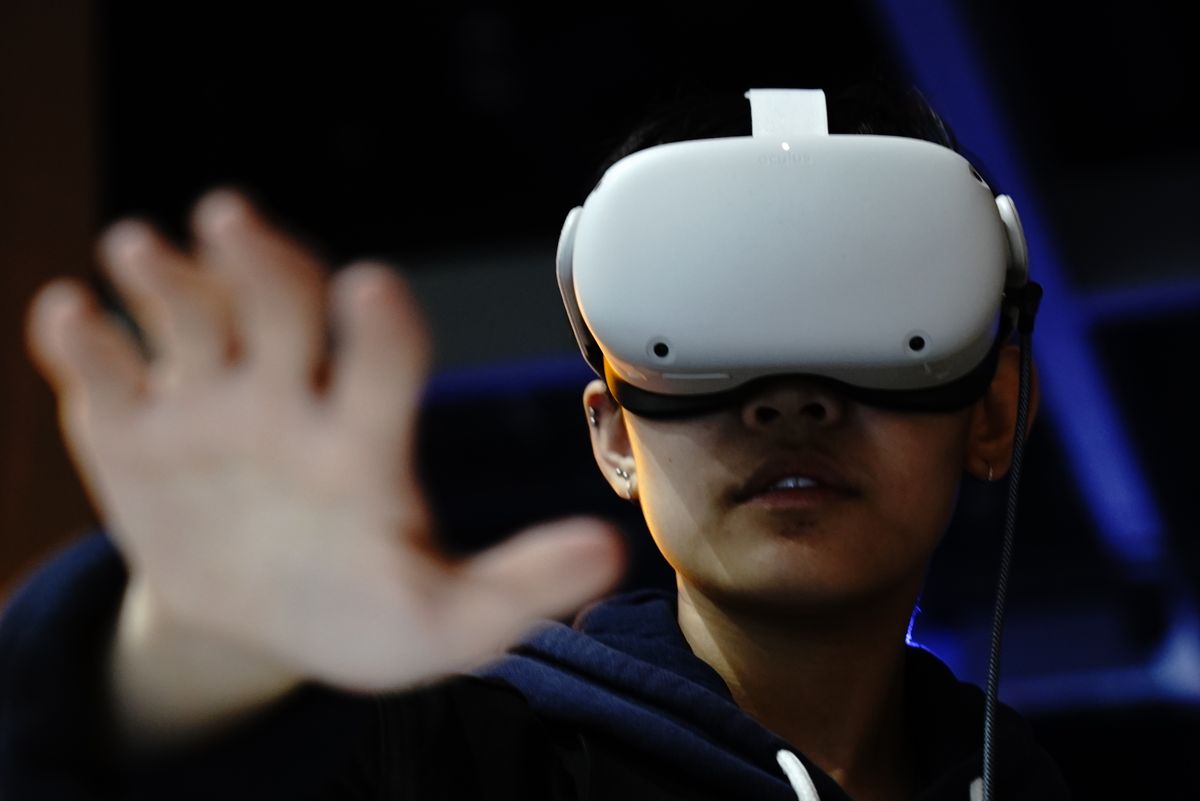The Quest 2 price hike sucks — but it's good for the future of VR
Meta's stranglehold on the standalone VR market was a problem

This week Meta announced that the base price of the Quest 2 VR headset is jumping from $299 to $399 and while that is going to be frustrating for VR buyers in the short term, let me explain why it's almost certainly a good thing for VR fans.
The Quest 2 is easily the best standalone VR headset on the market and as we highlighted early and often in our review, the $299 starting price was as amazing as the product itself. We've been reviewing the best VR headsets for years now and one of the biggest challenges has been that between the headset and the VR-ready laptop you were spending $2,000 at an absolute minimum to get into VR.
The original Oculus Quest started to open things up at $399 for a good standalone experience, but the Quest 2 is what really blew the doors off top with an outstanding user experience for under $300. So how could that be a bad thing?
Meta has altered the deal, pray it doesn't alter it any further
The problem with the Quest 2 being an absolutely unbeatable deal was precisely that, it left no room for competition. Meta was willing to take a loss on the hardware as it required users to sign in via a Facebook account (your data is worth money) and it locked you into the Oculus ecosystem.
When Meta killed the Facebook account requirement earlier this month we felt like it was too good to be true, and it turns out we were right. That was obviously a harbinger of this price hike, Meta wanted to enjoy a round of positive press before letting the other shoe drop. The ecosystem lock-in is annoying, but that's certainly something that we've become accustomed to with the likes of Apple similarly walling you off.
The reality is that even with this price hike the Quest 2 remains the best standalone VR headset on the market and it is still a solid value, just not the outstanding value it once was. Now part of the reason for this is almost certainly the Quest 2 itself, what company was going to release a standalone VR headset in the face of such a strong competitor that was taking a considerable loss on every headset it sold? Meta could probably raise the price another $50 and still not have any real worries about competition.

I thought you said this was a good thing
If you are reading this before August 1 when the price hike goes into effect and have been considering buying a Quest 2 then by all means do it. It's a great VR headset and you are unlikely to see a value equal to it anytime soon. But for anyone looking to buy on or after August 1 including those looking during the holiday shopping season this year, there's no denying that this sucks.
Stay in the know with Laptop Mag
Get our in-depth reviews, helpful tips, great deals, and the biggest news stories delivered to your inbox.
So go ahead and curse Meta for a second and then let's look at why it is a good thing for VR. Now that the Quest 2 has been pushed up to a price point that more accurately reflects the hardware cost, it opens things back up for potential competitors. It still likely needs to be a company like Valve that both has VR experience and can own its entire ecosystem to offset some of the cost, but given that the Quest 2 is two years old, a competitor could absolutely deliver comparable or better hardware in the $400 to $500 range.
Not only does this potentially give you a different spin on standalone VR hardware than what we have gotten from Meta, but it will also push Meta to remain price competitive with its hardware rather than just letting it push to find what the market will bear.
VR is seemingly everywhere these days with an abundance of talk about the Metaverse and devices like the PSVR 2, Apple AR/VR headset and a Quest 2 Pro all either announced or rumors to arrive in the near future. However, we are still in the extremely early days for VR and AR. I'm sure there are brilliant people working on VR at Meta, but there is also no doubt in my mind that VR as a whole will benefit from more companies working on both VR hardware and software to push one another and unlock the full potential of virtual reality.
Sean Riley has been covering tech professionally for over a decade now. Most of that time was as a freelancer covering varied topics including phones, wearables, tablets, smart home devices, laptops, AR, VR, mobile payments, fintech, and more. Sean is the resident mobile expert at Laptop Mag, specializing in phones and wearables, you'll find plenty of news, reviews, how-to, and opinion pieces on these subjects from him here. But Laptop Mag has also proven a perfect fit for that broad range of interests with reviews and news on the latest laptops, VR games, and computer accessories along with coverage on everything from NFTs to cybersecurity and more.
